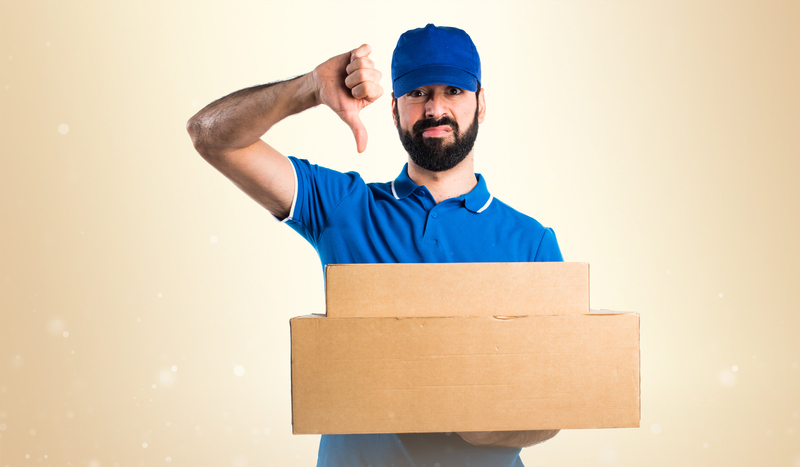Redefine the Way You Move with Less Stress
Posted on 10/06/2025
Redefine the Way You Move with Less Stress: A New Approach to Movement and Well-being
Moving--whether it's relocating your home, changing jobs, or even shifting your daily habits--can be one of life's most stressful experiences. But what if you could redefine the way you move with less stress? In this comprehensive guide, we'll explore scientifically-backed strategies and holistic approaches designed to help you embrace change and movement with confidence, ease, and minimized anxiety.

Understanding Why Movement Can Be Stressful
To truly transform your approach to movement, first consider why changes often cause stress. Whether it's packing physical boxes or tackling an emotional journey, movement brings disruption. Here are some common stress triggers:
- Uncertainty about the future.
- Overwhelming tasks and logistics.
- Emotional attachment to your current circumstances.
- Concerns about financial stability.
- Fear of the unknown or making a wrong decision.
Understanding these root causes is the first step to redefining the way you move with less anxiety. Once you recognize your personal triggers, you can develop strategies to address them head-on.
Transformational Strategies for Moving with Less Stress
1. Reframe Your Mindset
A stressful move often begins in your mind. By reframing your thoughts, you can change your experience. Instead of seeing change as a threat, view it as an opportunity. Some cognitive techniques include:
- Visualization of successful outcomes.
- Focusing on the potential benefits of the move.
- Practicing gratitude for what the present has given you and excitement for what's next.
- Challenging negative self-talk with positive affirmations.
2. Plan Ahead and Organize
Organization is essential to reducing stress when you move. The more control you have over logistics, the less overwhelmed you'll feel. Here's how to plan effectively:
- Write a detailed checklist of tasks.
- Break big projects into smaller, manageable steps.
- Start preparations early--give yourself weeks, not days.
- Use apps and tools to track your progress.
- Delegate and seek help from friends, family, or professionals.
3. Make Self-Care a Priority
It's easy to neglect self-care amidst the demands of movement. However, your well-being depends on it. To move with less stress, weave self-care into your routine:
- Get enough sleep to ensure mental clarity.
- Practice relaxation techniques, such as deep breathing or meditation.
- Stay physically active to release tension.
- Eat nutritious meals to fuel your body and mind.
- Carve out downtime, even if it's just a few moments a day.
4. Seek Support and Community Connection
You don't have to go through major changes alone. Whether you're moving houses or taking on a new life adventure, leaning on support can drastically minimize stress:
- Talk openly with friends and family about your feelings.
- Join support groups or online communities.
- Consult professionals--whether therapists or moving experts.
- Share the load; ask for help with specific tasks.
5. Focus on Meaningful Movement
Shifting your approach involves focusing on what matters. Meaningful movement is about prioritizing what will have the greatest positive impact on your life. This might involve:
- Eliminating unnecessary items or tasks during a physical move.
- Choosing changes that align with your values.
- Setting clear, achievable goals.
- Celebrating progress, however small.
Practical Tips for a Stress-Free Physical Move
If you're about to relocate, here are actionable ways to redefine your move with less stress:
Pack Smart with Strategic Organization
- Label everything with room and priority.
- Use color-coded stickers or markers for quick reference.
- Keep essential items separate in a "survival bag."
- Pack gradually, starting with least-used items.
Downsize and Declutter
Clutter can increase anxiety. Take this opportunity to simplify your belongings:
- Donate, sell, or recycle things you no longer need.
- Keep only what adds value and joy to your life.
Hire Professionals When Needed
If your budget allows, consider expert movers or organizers:
- They can efficiently handle heavy lifting, logistics, and fragile items.
- Look for companies experienced in stress-free relocations.
Create a Comfortable Space Quickly
- Unpack essentials first--bedding, clothes, kitchenware.
- Add personal touches, like photos or favorite decor, to your new space early on.
Emotional Wellness During Movement: Redefining Your Stress Response
Beyond logistics, moving with less stress is largely emotional. Emotional responses can intensify, especially when facing major life transitions. Here's how to support your emotional wellness:
Allow Yourself to Feel
Acknowledge all emotions, even the difficult ones. Suppressing feelings can make stress worse. Give yourself permission to process sadness, excitement, or worry.
Practice Mindfulness
- Use mindfulness meditation to increase resilience.
- Focus on the present instead of ruminating on the past or fearing the future.
Keep Communication Open
Family members or roommates might feel the strain, too. Try to:
- Have regular check-ins to discuss concerns or needs.
- Delegate duties based on each person's strengths.
- Voice appreciation for one another's efforts.
Physical Movement and Stress Reduction: Redefining How You Move Your Body
"Movement" isn't just figurative--it's also about your body's literal activity. Physical movement can be a powerful antidote to stress. Here's how to redefine the way you move physically for less anxiety:
Why Physical Activity Helps
- Exercise triggers the release of endorphins, your brain's natural stress relievers.
- It provides a positive outlet for nervous energy.
- Moving your body can improve sleep and mood--which lowers stress overall.
Choose Enjoyable Activities
- Walk, dance, swim, or cycle--find what brings you joy.
- Mix up intensities: blend gentle yoga with brisk cardio.
- Invite others to join for social connection.
Redefining Daily Routine: Small Shifts, Less Stress
Redefining movement extends to your daily habits and routines. Incremental tweaks can have a transformative effect:
- Incorporate mini breaks into your workday for stretching or breathing.
- Set aside daily "transition" time between activities to reset your mind.
- Try micro-movements--like a quick walk or a few deep breaths--to break up mental or emotional stress.
- Evaluate your daily schedule: can you eliminate or automate any tasks?
Technological Tools to Support a Less Stressful Move
Take advantage of modern tools to help minimize moving stress:
- Download organization or checklist apps tailored for moving.
- Use calendar reminders and collaborative tools to coordinate tasks with others.
- Try virtual tours or online resources to familiarize yourself with your new environment.
After the Move: How to Reinvent and Rebalance Yourself
The process doesn't end once you've arrived at your destination--physically or mentally. Embrace the moment to reinvent routines, reconnect, and build resilience:
Establish New Rituals
- Create lasting routines in your new environment--morning walks, weekly dinners, or hobby sessions.
- Connect with neighbors or join local groups to foster community and belonging.
Reflect and Grow
- Take time to journal about what you've learned from the experience.
- List new habits you'd like to maintain for the future.
- Consider how you can apply your stress-reducing strategies to other areas of life.

Expert Insights: What Science Says about Moving with Less Stress
Research backs up that how you perceive and approach a move can determine your stress outcome. The American Psychological Association notes that preparedness, optimism, and social support significantly lower stress during life transitions.
Additionally, a 2017 survey by the Employee Benefit Research Institute found that people proactive in planning and seeking community resources handled major life events with less anxiety and greater satisfaction.
Conclusion: Redefine the Way You Move--Your Stress-Free Journey Starts Now
Change is inevitable, but how you handle it is up to you. By redefining the way you move with less stress, you empower yourself to embrace life's transitions with resilience and confidence. Remember:
- Mindset matters--view movement as growth, not upheaval.
- Planning and organization reduce overwhelm.
- Self-care is non-negotiable.
- Physical and emotional wellness are interconnected.
- Community and support lighten the load.
Life will continue to move, but with these strategies, you'll move smarter, stronger, and with less stress. It's time to take your first step--confidently.
Latest Posts
Innovative Ways to Transport Your Bed and Mattress
Why a DIY Piano Move Could Be a Costly Mistake
Pre-Move Decluttering: Start Fresh in Your New Home



